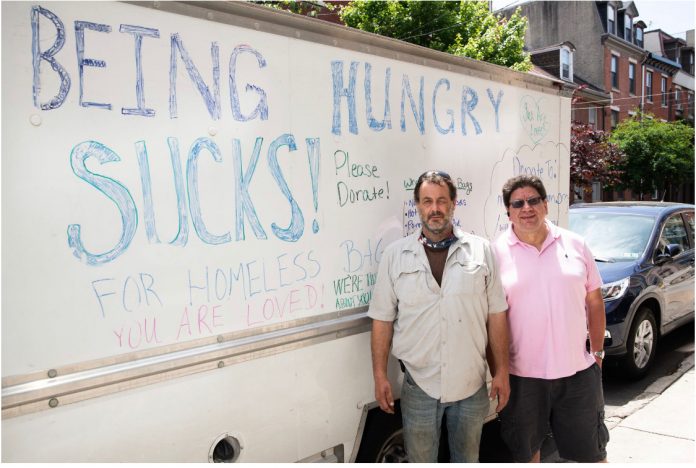When Steve Grosswald began spending much of his time volunteering during shutdown about a year ago, he found that there were a great number of altruistic people and organizations working to help the hungry and the homeless. But he also spotted a flaw in the system.
“There’s plenty of food, money and great organizations, but very little collaboration between them,” he said.
Specifically, he noted competition between nonprofits and a lack of coordination among the city, federal and not-for-profit corporate worlds. These variables help sustain the status quo of hunger and homelessness in the city, he reckons.
Previously working at a consulting company that “came to a screeching halt” during COVID, Grosswald decided he wanted to dedicate his time to helping those in need. He created Mission Philadelphia, a not-for-profit seeking to disrupt the status quo, which became an official entity July 4 last year.
He also took on an ambitious five-year plan: end homelessness and hunger in Philadelphia by July 4, 2026.
“Unless homelessness is dealt with, they’re just going to eventually move those homeless people from Kensington to Frankford or somewhere else and have it be someone else’s problem,” he said.
A former property owner in Frankford, Grosswald is focusing his efforts in that neighborhood and Kensington. Partnered with St. Miriam’s Church in Flourtown, the organization delivers “blessing bags” filled with supplies along Frankford and Kensington avenues multiple times a week, and also works closely with Prevention Point in Kensington to provide food and additional support every weekend.
Recently, Mission Philadelphia helped distribute 50,000 meals across the Philadelphia region in a partnership with Share Food Program and Beyond Meat. The meals, which were destined for landfill until Grosswald was able to secure them, were distributed among 500 partner organizations across the area.
The meal distribution continued last weekend when Mission Philadelphia partnered with Honest, a Coca-Cola Brand, to distribute food to about 400 neighbors in Kensington.
The food distributions are helpful, but they’re just the beginning.
“There’s a lot of money being spent, plenty of people trying to help, but nothing’s changing. It’s only getting worse because of COVID,” Grosswald said.
Grosswald has three main goals for the next five years. The first is maximizing food donations in the city, which is already well underway. Second is getting everyone eligible signed up for Medicare and Medicaid, as only an estimated 60 to 70 percent of the homeless population are signed up. Lastly, incrementally getting people into unused housing units in the city, which currently has 40,000 vacant lots and buildings, according to Grid Philly.
All of these goals will be achievable if the city changes its handling of the homeless population, Grosswald said.
He hopes to start getting people moved into the first house by July 4 for the organization’s first anniversary.
“The status quo is a powerful thing,” he said.
Grosswald wants to get to work breaking it.
Learn more, donate and follow Mission Philadelphia at MissionPhiladelphia.org.





